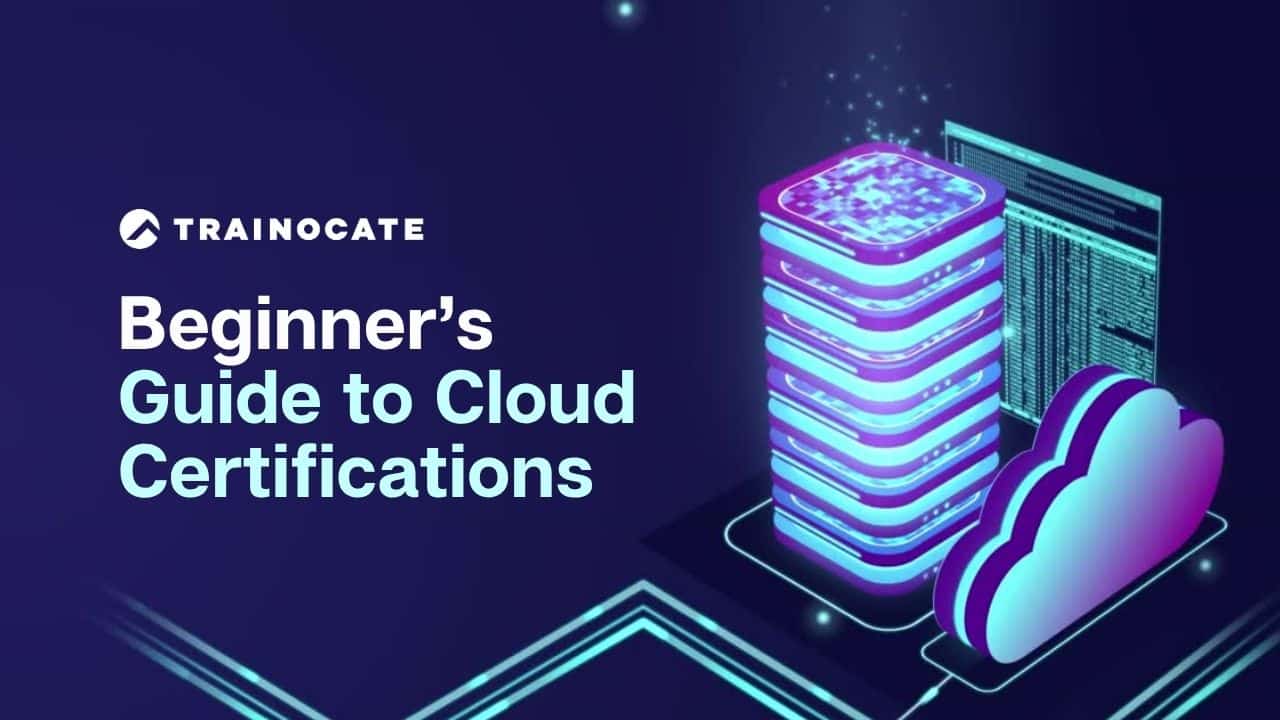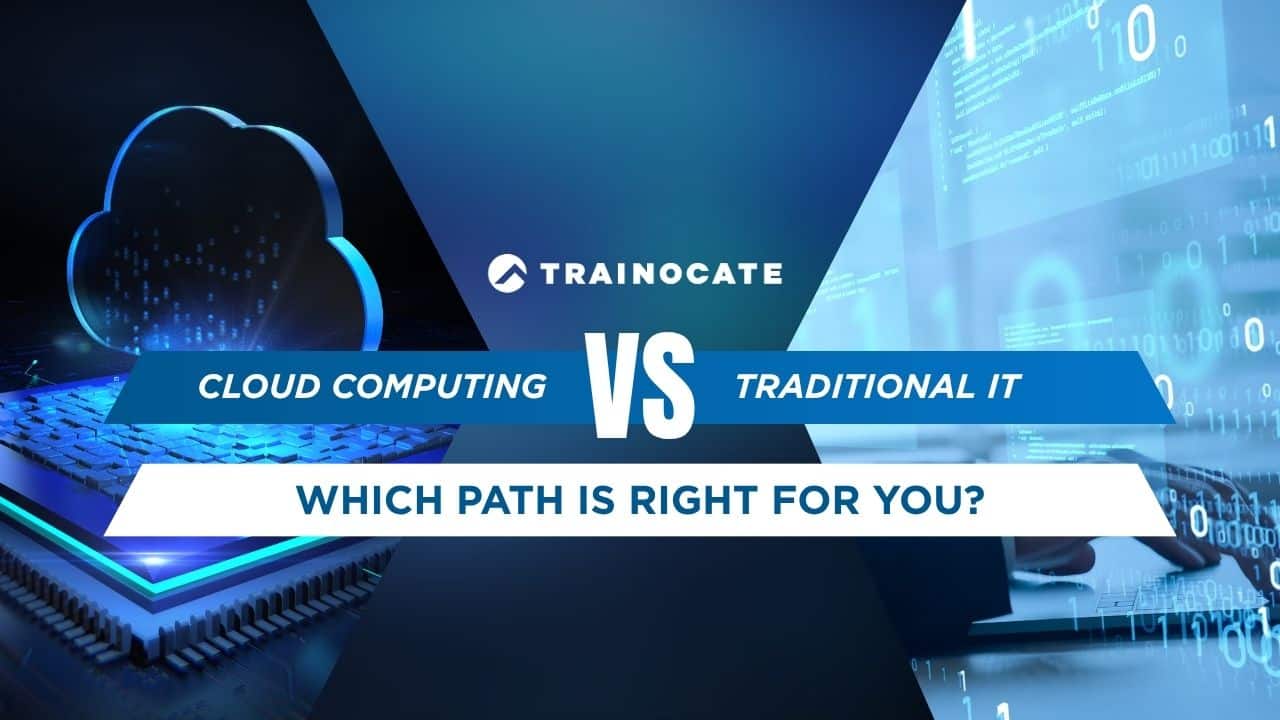Beginner’s Guide to Cloud Certifications (AWS, Azure, Google Cloud, Oracle, Alibaba, VMware)
Beginner’s Guide to Cloud Certifications (AWS, Azure, Google Cloud, Oracle, Alibaba, VMware)

Cloud Certifications for Beginners: A Guide to AWS, Azure, Google Cloud, Oracle, Alibaba, VMware
The demand for cloud computing expertise has grown rapidly as companies continue migrating to cloud-based systems. From infrastructure modernization to data-driven operations, cloud adoption has become central to digital transformation.
One of the most accessible ways to break into cloud computing is through certification. Whether you’re starting fresh, switching careers, or looking to enhance your skill set, certifications provide formal proof of competency and can accelerate your career development and skill enhancement, significantly improving your job prospects.
This blog acts as a guide that explores beginner-level certifications from the top cloud providers—AWS, Azure, Google Cloud, Oracle, Alibaba, and VMware—to help you make an informed choice about where to begin.
Introduction to Cloud Certifications
Cloud certifications have emerged as a vital credential for professionals looking to validate their cloud computing skills. These certifications serve as a formal recognition of an individual’s expertise in various cloud platforms and services, making them highly valuable in the job market. Whether you’re a beginner or an experienced professional, obtaining a cloud certification can significantly boost your career prospects by demonstrating your commitment to staying current with industry trends and technologies.
Cloud certifications cover a wide range of topics, from fundamental skills to advanced specializations in areas like machine learning, artificial intelligence, and cloud security. They provide a structured learning path that helps individuals gain hands-on experience and practical knowledge, preparing them for real-world challenges. As businesses increasingly adopt cloud solutions, the demand for certified professionals continues to rise, making cloud certifications a smart investment for anyone looking to advance their career in the tech industry.
Why Pursue Cloud Certifications?
Industry demand for certified cloud professionals continues to rise. Organizations are adopting cloud-first strategies, investing in hybrid and multi-cloud environments, and looking for talent that can help them make that transition smooth.
Obtaining cloud certifications gives job seekers an advantage in the competitive job market by showcasing their familiarity with popular platforms like AWS and Azure, which are highly sought after by employers.
A cloud certification can:
Serve as a formal validation of your technical knowledge
Help you qualify for interviews you might otherwise be filtered out of
Demonstrate your commitment to professional development
Enable higher salaries, particularly in roles like Solutions Architect or DevOps Engineer
According to the Pearson VUE 2025 Candidate Report, 82% of certified professionals felt more confident applying for new roles after certification.

Entry-Level Cloud Certifications
These certifications require no prior cloud experience and are a great place to begin. For learners looking to enhance their cloud skills, these certifications offer valuable training resources and opportunities for professional growth.
Career Opportunities with Cloud Certifications
Cloud certifications can open a wide range of career opportunities for individuals in the field of cloud computing. With the increasing demand for cloud skills, certified professionals can expect high paying job roles, such as cloud engineer, cloud architect, and cloud administrator. Additionally, cloud certifications can also provide opportunities for career advancement, as certified professionals can take on more responsibilities and leadership roles within their organizations. By obtaining cloud certifications, individuals can demonstrate their expertise and commitment to the field, making them more attractive to potential employers.
Cloud Certification Specializations
Cloud certification specializations can provide individuals with advanced skills and knowledge in specific areas of cloud computing. For example, certifications in machine learning and artificial intelligence can provide individuals with the skills needed to design and deploy AI-powered cloud-based systems. Similarly, certifications in cloud security can provide individuals with the knowledge and skills needed to secure cloud-based systems and protect against cyber threats. By specializing in a particular area of cloud computing, individuals can increase their earning potential and career prospects. Additionally, cloud certification specializations can also provide individuals with hands-on experience and practical knowledge, making them more confident and competent in their roles.
Comparing Cloud Certifications
Each provider structures their certifications differently and emphasizes different aspects of cloud expertise:
| Cloud Certification | Expertise |
|---|---|
| AWS | Most mature ecosystem, broad applicability, good starting point for generalists. (33% global cloud market share, Statista) |
| Azure | Common in enterprise environments, often required in government or regulated sectors. |
| Google Cloud | Strong in AI and data analytics roles, growing adoption in Southeast Asia. |
| Oracle | Ideal for roles in enterprise IT stacks, ERP, and financial systems. |
| Alibaba Cloud | Leading choice for Southeast Asia-based deployments. |
| VMware | Strongest for hybrid cloud and virtualization-heavy companies. |
Certification cost and availability also differ:
AWS, Azure, and Google often offer free learning platforms (Skill Builder, Learn, Skills Boost)
Oracle, Alibaba, and VMware training may require institutional access or partner programs.
Industry Recognition
AWS, Azure, and Google Cloud certifications are widely recognized; Oracle, Alibaba, and VMware certifications are valuable in specific contexts.
AWS, Azure, and Google Cloud Certifications: Widely Recognized Across Industries
Oracle, Alibaba, and VMware Certifications: Valuable in Specific Contexts
How to Choose the Right Certification for You
Choosing a certification should depend on your career objectives, industry alignment, and geographic focus.

If you want to work in finance, education, or government

If you’re aiming for startups, e-commerce, or general cloud roles

If your focus is on data science or analytics

If you’re in Southeast Asia or China-based markets

If you’re entering multi-cloud or architecture roles
Aligning your certification schedule with your career goals is crucial to ensure you gain the right skills at the right time.
Tip: Start with a free course on the provider’s official platform, take a few practice quizzes, and join cloud forums (e.g., Reddit, LinkedIn, Discord) to get peer support.
Staying Up-to-Date with Cloud Certifications
Staying up-to-date with cloud certifications is crucial in the field of cloud computing. With new technologies and services emerging every day, certified professionals need to continuously update their skills and knowledge to remain relevant. Microsoft provides a range of resources and services to help individuals stay up-to-date with their certifications, including online courses, training programs, and certification exams. Additionally, cloud providers such as Google and Amazon also offer a range of resources and services to help individuals stay current with their certifications. By staying up-to-date with cloud certifications, individuals can demonstrate their commitment to the field and stay ahead of the competition.
Furthermore, staying current with cloud certifications can also provide individuals with access to exclusive benefits, such as priority customer support, exclusive training opportunities, and increased earning potential.







